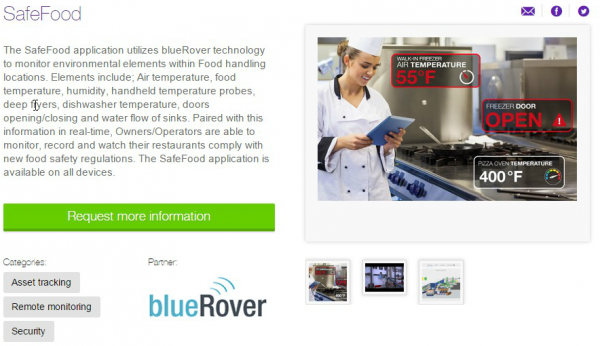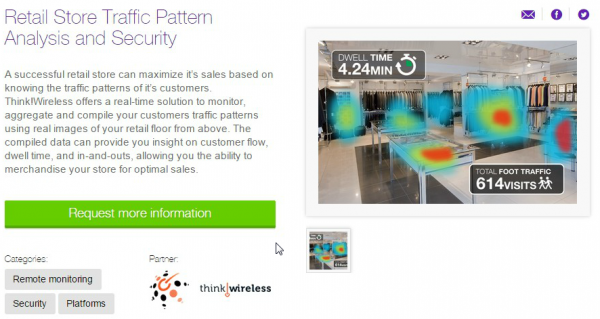Vancouver-based Telus Corp. is offering its partners a new way to sell their solutions through via a Internet of Things (IoT) marketplace that will see various partner services featured as available to add on to a monthly Telus bill, the telco announced on Wednesday.
Previously Telus marketed several different IoT solutions under its machine-to-machine or M2M offerings banner. There are 38 solutions organized under the new IoT marketplace, according to Greg Stark, senior product manager, Telus Corp. For each solution, a customer that chooses to implement it can simply add the cost to their monthly bill.
“What we’ve found is when we pull solutions into integrated packaging, its more humanizing and its easier for customer to understand,” Stark says. “Its’ really about simplifying the experience and making it easy to deploy.”
Toronto-based SensorSuite Inc. has several of its solutions included in the launch of the marketplace, according to CEO Robert Platek. Its solutions focus on providing information for property managers about their buildings in real-time and include Boiler Link, Fridge Link, Smart Water, and Suite Meter.
“We think Telus is a great channel partner because the way we are structuring our services is on the recurring model, which is the way they are building this,” he says. “Also, they have a massive customer base.”
Telus is continuing to add more partners with IoT solutions to the marketplace. It is taking applications to be featured, but partners must already have a solution with customers to be considered.
“We’ve been trying to curate all the elements of the solutions together for the customer,” says Stephen Eyre, director of the IoT partner eco-system. “We will support the winners and when appropriate help those are struggling to turn a profit.”
The marketplace may also be open to solution providers that aren’t working with Telus, or even those outside of Canada, Stark says. But Telus will be looking to pick “the right solutions and the best solutions,” not adding everyone that applies, he says.
Those pedalling their services on the marketplace will also have to use Telus for any infrastructure required to run the service. Products that use cell service will need to use Telus’ network, for example, Stark says.
The web marketplace offers solutions across several industries including transportation, oil and gas, retail, restaurant, construction, and public safety. While customers can’t actually buy the solutions on the website, they can contact a representative to start a discussion down that path. IoT solutions require a more customized touch, Stark explains.

For SensorSuite, the marketplace serves as a lead generation tool. SensorSuite had previously been using Telus’ M2M services to deliver its solutions – all its data is transmitted in an encrypted format via cellular modem on the Telus network. When Telus approached Platek about its new IoT Marketplace, he was sold on the idea.
“It’s a great way to get exposure, Telus has customers across all verticals and industries,” he says.
When a deal is closed, Telus gets a share of the monthly revenue and the solutions partner gets the remainder, Platek says. “The percentage is similar to other app stores.”
While the Internet of Things phrase has been tossed around a lot – mainly by tech vendors and analysts – it might seem like an ambiguous concept to most businesses. Telus commissioned an IDC study earlier this year that found just 13 per cent of Canadian businesses would deploy an IoT solution by the end of 2014. Perhaps the problem is that few understand what applications IoT could have for their business.
Examples of introductory solutions include SafeFood, which monitors many aspects of a kitchen that are a requirement to avoid harmful bacteria forming on food to be served to customers. Combined with real-time monitoring software, sensors that track temperature, humidity, and other aspects can be used to help restaurants demonstrate compliance with health regulations.

Another solution, Retail Store Traffic Pattern Analysis and Security uses video analysis of a store environment to map customer flow. So retailers can adjust where they put inventory based on where customers are likely to linger.
“Imagine the iPhone without the App Store. It’d be totally fragmented. You’d have to go all over the place to find your apps,” Stark says. “That’s the Internet of Things market today.”
Telus is trying to bring all the integration together with its new web portal, he adds. The site is slated to go live on Wednesday.
